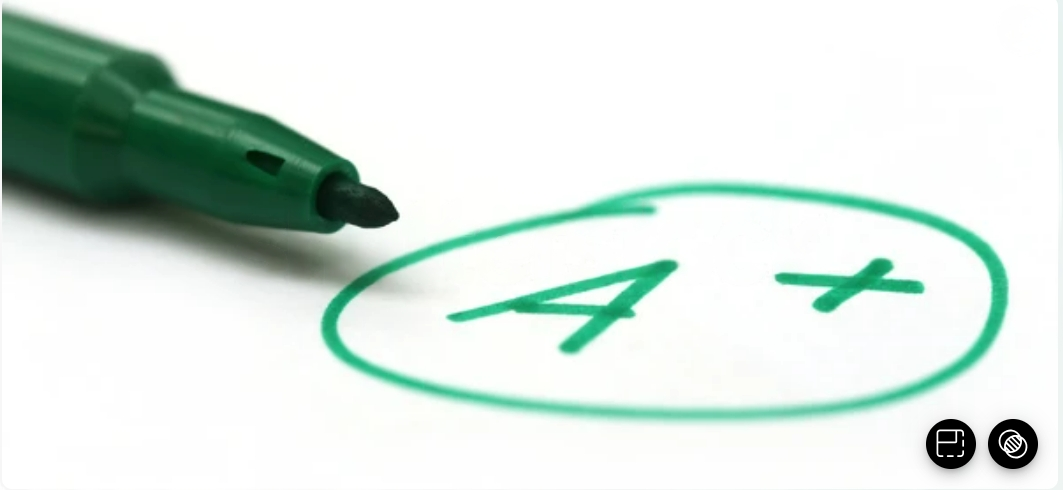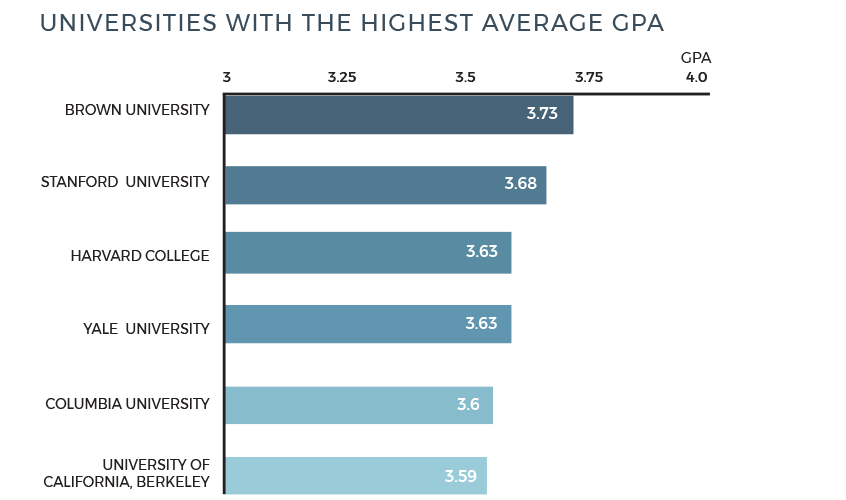Update: This article was last updated on 15th January 2026 to reflect the accuracy and up-to-date information on the page.

First thing first. What does GPA stand for? The term GPA stands for grade point average, which is the average measure of grades. These grades are important for college applications.
If you wish to enroll in prominent universities like Ivy League colleges, your GPA must be 4.0. What if your GPA was 3.5?
Education is the most powerful weapon we can use to change the world
—Nelson Mandela
What is a 3.5 GPA?
A 3.5 GPA sits between A- and a B+. So, don’t be discouraged; you have many possibilities to realize your desire to pursue higher education. There is still something to make you happy.Bear in mind that even though some kids may have GPAs that are higher, such as 4.0s, universities take other factors into account. Consequently, if you have other good components in your application, you might still strive for elite colleges.
Below table shows how 3.5 GPA is a good percentage grade:
| Letter Grade | Percentage Grade | GPA | Letter Grade | Percentage Grade | GPA |
|---|---|---|---|---|---|
| A+ | 97-100 | 4.0 | C+ | 77-79 | 2.3 |
| A | 93-96 | 4.0 | C | 73-76 | 2.0 |
| A- | 90-92 | 3.7 | C- | 70-72 | 1.7 |
| B+ | 87-89 | 3.3 | D+ | 67-69 | 1.3 |
| B | 83-86 | 3.0 | D | 65-66 | 1.0 |
| B- | 80-82 | 2.7 | F | Below 65 | 0.0 |
Is a 3.5 GPA Good in College?
The average GPA for undergraduate students in the United States is around 3.15. Having a 3.5 GPA puts you above this average. It’s also a solid GPA for qualifying for honors programs and making the dean’s list.However, it’s important to note that the minimum GPA required for graduation is usually 2.0, and many scholarships require grades above a C average. If your GPA falls below 1.5, you might face academic probation or even removal from the school. Therefore, a 3.5 GPA is certainly excellent enough to apply for college.
What Colleges Can I Get Into With a 3.5 GPA?
A lot of universities open doors for students with 3.5 GPA score. In fact, we have gathered information on what schools are reach, match, and safety schools to apply to with a 3.5 GPA.
Reach School
These colleges are difficult to get into now because their average GPA is greater than 3.5.
Recommended reading: Why Improving Your GPA Can Help You Get Into Your Dream College
| School Name | Location | GPA |
|---|---|---|
| Rochester Institute of Technology | Rochester, NY | 3.7 |
| University of Cincinnati | Cincinnati, OH | 3.7 |
| New York University | New York, NY | 3.69 |
| Syracuse University | Syracuse, NY | 3.67 |
| American University | Washington, DC | 3.65 |
Match Schools
Based on your grades and test scores, it is likely that this college or university will accept you. However, admission is not guaranteed as there may be other factors considered in the application process.
Recommended reading: Admission Process at the University Of Washington
| School Name | Location | GPA |
|---|---|---|
| University of Arizona | Tucson, AZ | 3.39 |
| Quinnipiac University | Hamden, CT | 3.47 |
| Ohio University | Athens, OH | 3.54 |
| Temple University | Philadelphia, PA | 3.54 |
| Penn State University Park | University Park, PA | 3.58 |
Safety Schools
A safe school is a college where you are likely to get accepted. You should have a higher GPA than the school’s average and a competitive SAT or ACT score. In other words, it’s a college where you have a good chance of being accepted!
Recommended reading: Northwestern University: Fees, Rankings & Acceptance Rate
| School Name | Location | GPA |
|---|---|---|
| The University of Texas at Arlington | Arlington, TX | 3.47 |
| University of North Texas | Denton, TX | 3.47 |
| Washington State University | Pullman, WA | 3.46 |
| The University of Texas at San Antonio | Arlington, TX | 3.4 |
| Pace University | New York, NY | 3.4 |
How to Improve my 3.5 GPA in High School?
 1. Take the appropriate classes.
1. Take the appropriate classes.
To improve your GPA in high school, it’s important to choose classes that you feel confident in. Taking on too many difficult courses can be overwhelming and may impact your grades. So, it is advisable to have a solid GPA with fewer advanced classes than a lower GPA with more advanced classes. Prioritize your confidence and focus on performing well in the classes you take. Remember, universities value a strong GPA, so it’s better to have a solid performance in a few challenging classes than to struggle in several of them.
2. Take Easier Classes
Consider switching to a lower-level course if you’ve been struggling consistently in a subject, affect your GPA. This transition allows you to build on your existing knowledge while addressing your weaknesses. Also, assess your teacher interactions and seek extra support as needed to improve your grades and GPA.
3. Consider grades from middle school
If you excelled in advanced middle school subjects, consider discussing their inclusion in your high school GPA with your counselor. Certain high schools permit this practice.
4. Make a proper schedule for studying.
Spending 30 minutes to an hour longer on homework every night is the greatest method to raise your GPA. What way of learning suits you best? Some of them are:
- Taking notes in lectures and Extra classes.
- Creating a visual representation of your notes makes it simple to understand.
- Take your handwritten notes and print them for the long term.
The below data is a graphical representation of data from universities with the highest GPAs.
 Get extra help from teachers after school
Get extra help from teachers after school
Use your teacher’s working hours, which usually extend after school hours, to go and do your homework in their class so that when you’re stuck, you can ask them questions. That is also to your advantage because teachers see that you’re making the effort, they may consider your effort while grading. Your teacher is your primary resource for doing well in class, so whatever aid they can offer beyond your usual class time will only be to your benefit. Teachers also have connections. If you show improvement and interest, they may move you to another class, connect you to a counselor at a college, or pull some other strings that can improve your chances of getting into a better institute.
Recommended reading: University of Michigan- Ann Arbor: Majors, Acceptance Rate & Rankings
Conclusion
It’s important to note that admissions decisions are based on a variety of factors beyond GPA, including standardized test scores, extracurricular activities, personal statements, and letters of recommendation. Additionally, each college’s acceptance criteria can vary year by year. Therefore, it’s always a good idea to research the specific admissions requirements of each institution you’re interested in.
Moonpreneur is on a mission to disrupt traditional education and future-proof the next generation with holistic learning solutions. Its Innovator Program is building tomorrow’s workforce by training students in AI/ML, Robotics, Coding, IoT, and Apps, enabling entrepreneurship through experiential learning.

























Do extracurricular activities make up for a 3.5 GPA when applying to colleges?
Yes, although extracurricular activities might improve your college application, especially at highly competitive colleges, they might not be able to make up for a lower GPA. It’s usually advised to use a balanced strategy that balances extracurricular activities with academics.